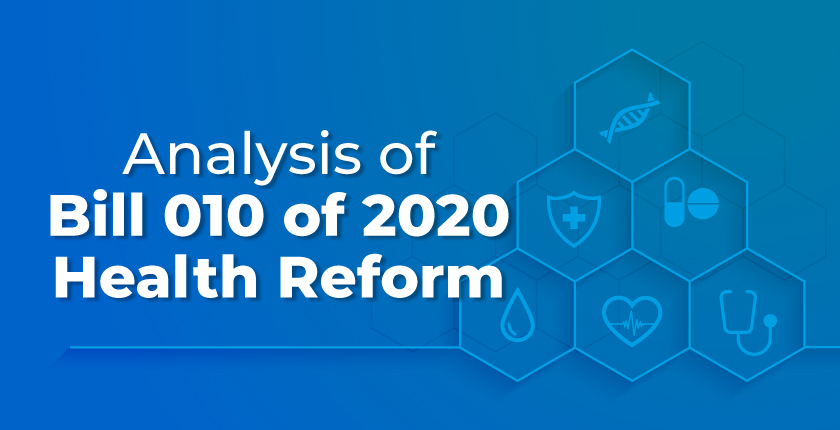Blog
A look from the Specialization in Health Services Administration
- 6 mayo, 2021

We address the health reform project that currently generates controversy given the magnitude of its lines of action, and modification; We want to show its critical points so that the analysis that is currently being carried out from various sectors and communities can have greater clarity:
What does the health reform project consist of?
This draft Law 010 of 2020 on health reform aims to guarantee the fundamental right to health and the sustainability of the system, emphasizing the person as its center; So far, it is consistent with the claim of what health should be for each person, in any society: «A right.»
What are the principles of this reform project?
- Accessibility.
- Quality.
- Availability.
- Universality.
- Chance.
The same that are ideal, and should be inherent to the provision and access for any citizen without any type of exclusion derived from their socio-economic, cultural or ideological condition.
What does this reform propose?
- Guarantee greater access to health services, with better indicators of opportunity and quality.
- Faced with the health care model, the primary health care strategy will be renewed with a focus on family and community health and will be provided through integrated and comprehensive networks (made up of public and private entities) that must be established for this purpose. .
- It organizes the system by regions, purifies it and intends to unify the subsidized and contributory regimes with common aspects to guarantee promotion, provision of services, insurance and the creation of networks.
What is in game?
- The EPS intend to assume power.
- Public resources are exclusive for health care, that is the greatest claim, to turn them into private resources.
- Appropriating the unit by capitation, the premium that is recognized for each person in the contributory and subsidized regimes.
- Decreases the benefit plan, means the guarantee to access medical services.
- Imposes more barriers to access to health services.
- Creation of primary and complementary providers and centers of excellence that are not good for the system, and are not interconnected, which places the citizen on the famous walk of death.
- One of the most critical points of this reform undoubtedly focuses on the modification of the figure of the EPS, which will become insurance companies, which implies that each Colombian will pay an additional premium to access this right .
- Within a period of six months, only once, the current EPS may be transformed, merged, split or liquidated, in accordance with the regulations issued by the Ministry of Health, which, without a doubt, interferes with the provision of the services in this transition period.
- The profits derived from the provision of the service will go to the financial sector and not to the population, in conclusion, fewer services will be provided to obtain greater financial profitability.
- Public hospitals will be liquidated.
- The hospital network will be private.
- Faced with human talent, the administrative career regime will end, in short, there will be no job stability for health professionals, consequently, there is job insecurity and lack of protection.
- It favors the financial sector and EPS owners.
- It ends medical autonomy.
- It interferes with university autonomy since it includes an educational reform for specializations, also affecting the financing of university hospitals.
From the administrative components of the health sector, it is clear that any reform must guarantee improvement processes for the benefit of both who provides and who is a user of each service; There are noble purposes in front of the principle of universality that is proper to this human right, however, there is much to build, debate and strengthen in the hands of all those who through their training bet on the future of the health sector, in order to achieve this the binomial of health and development as axes of convergence.
Jorge Iván Álzate Ángel: Specialist in Health Services Management
Sandra Mónica Ramos Ospina: Specialist in Health Services Administration
